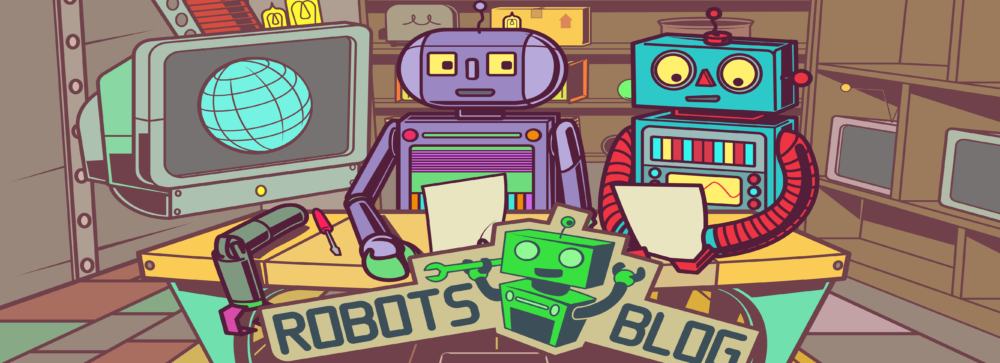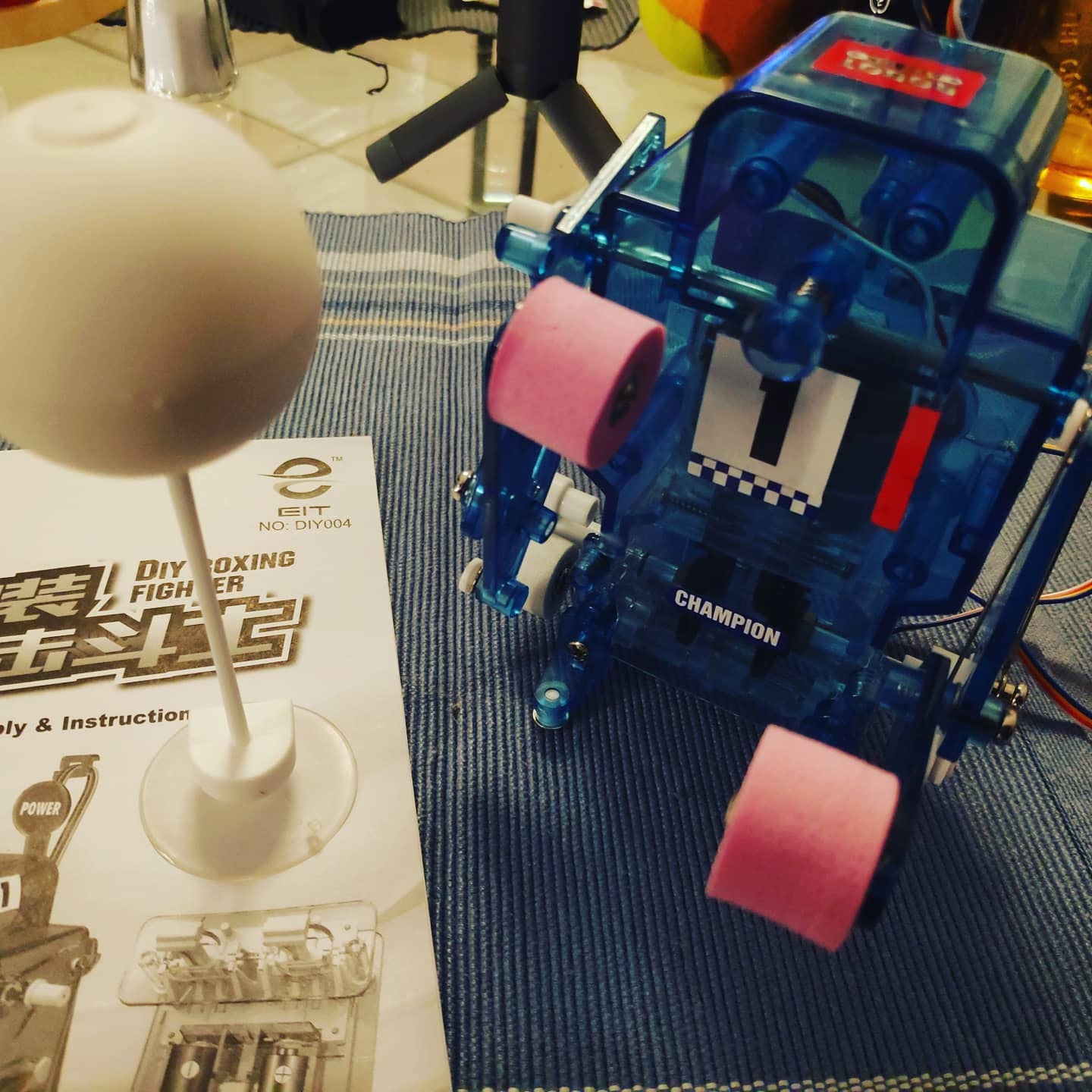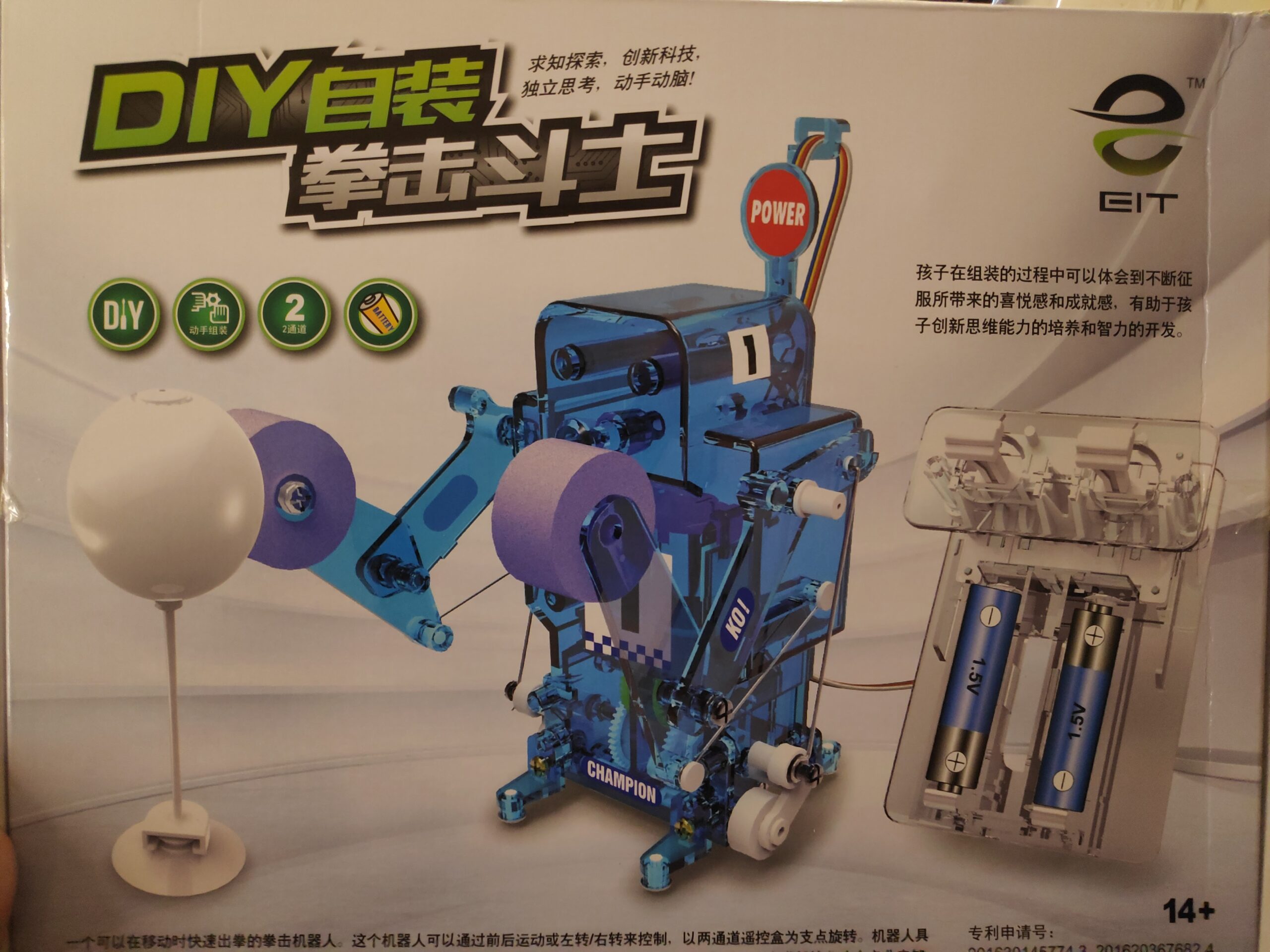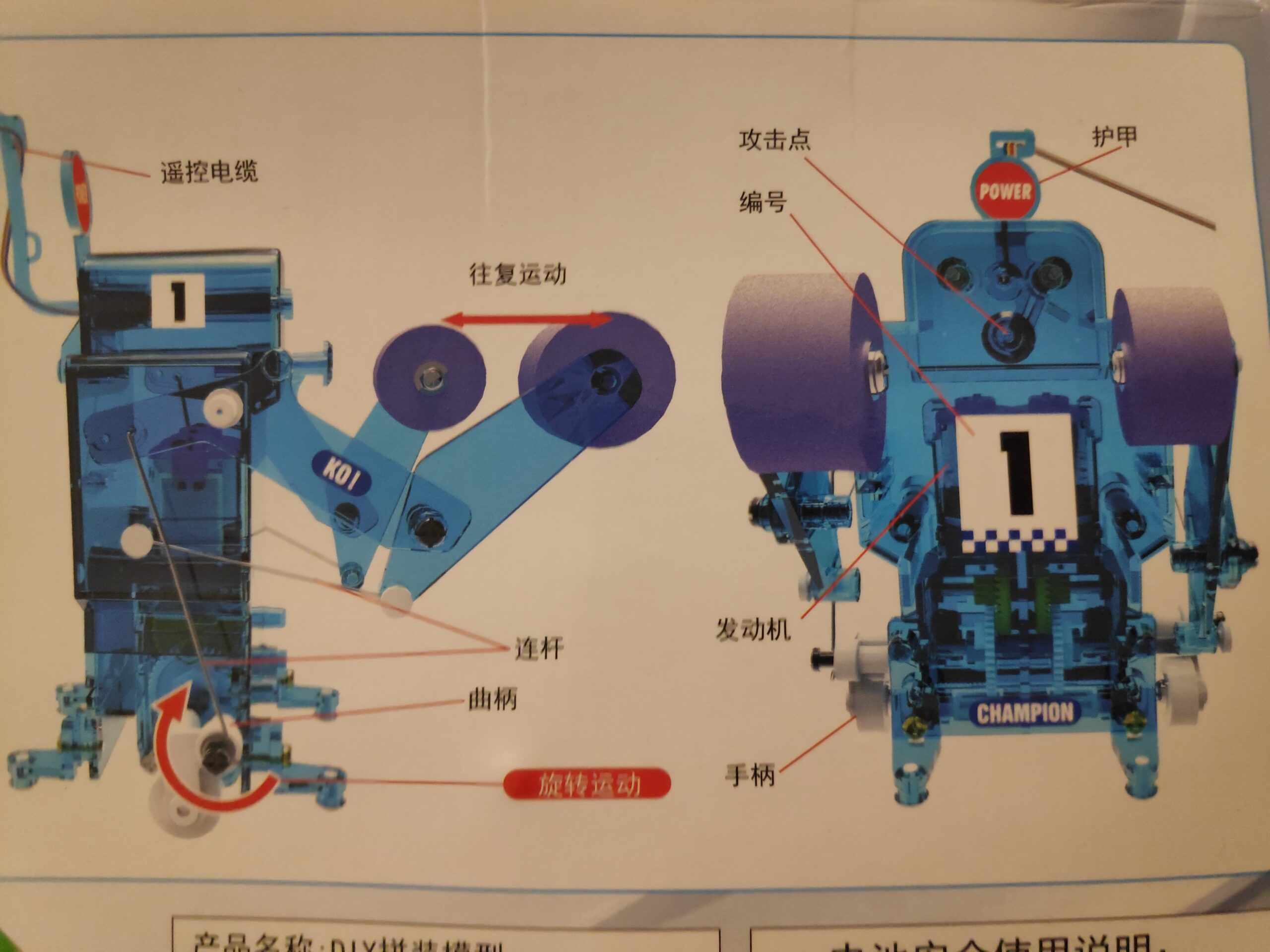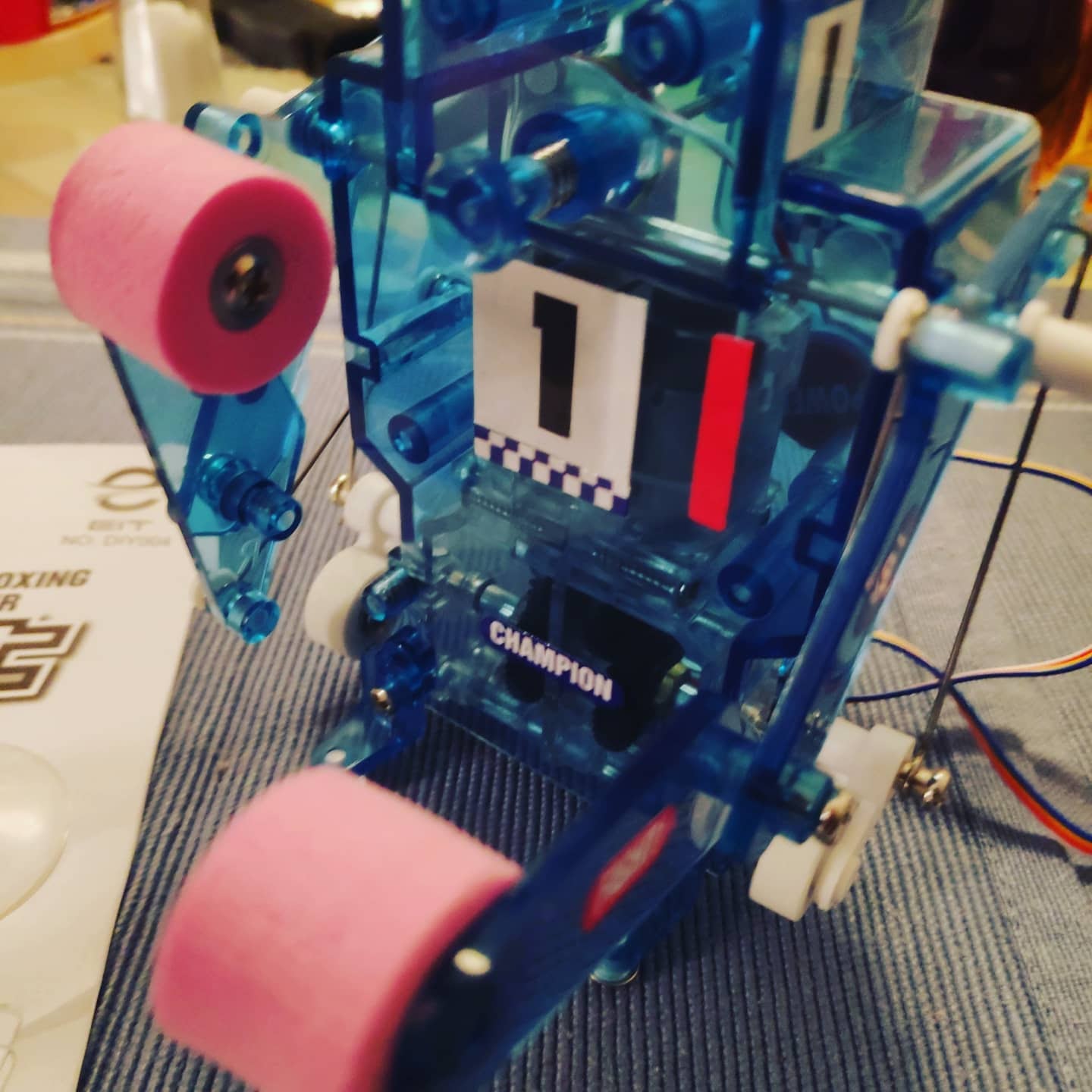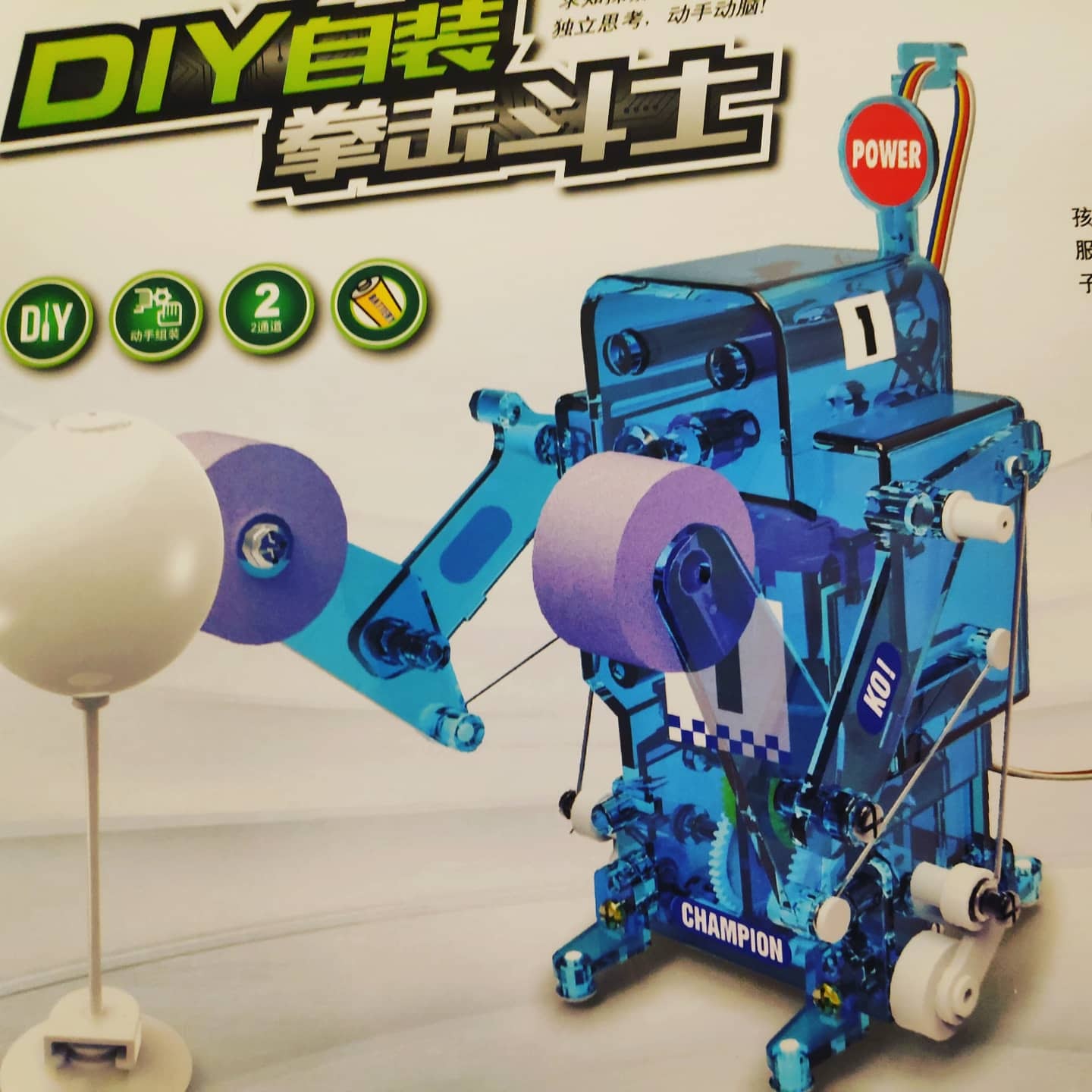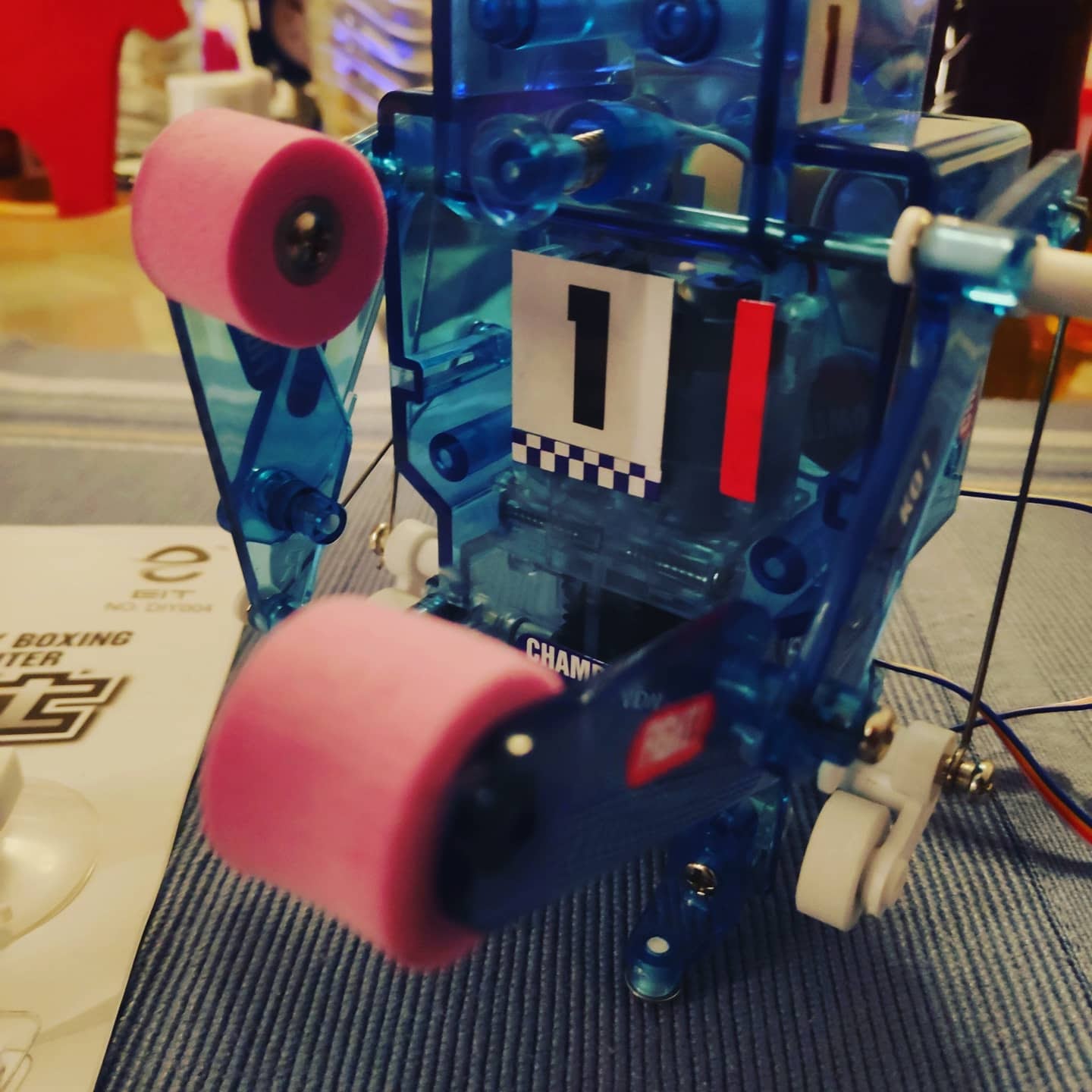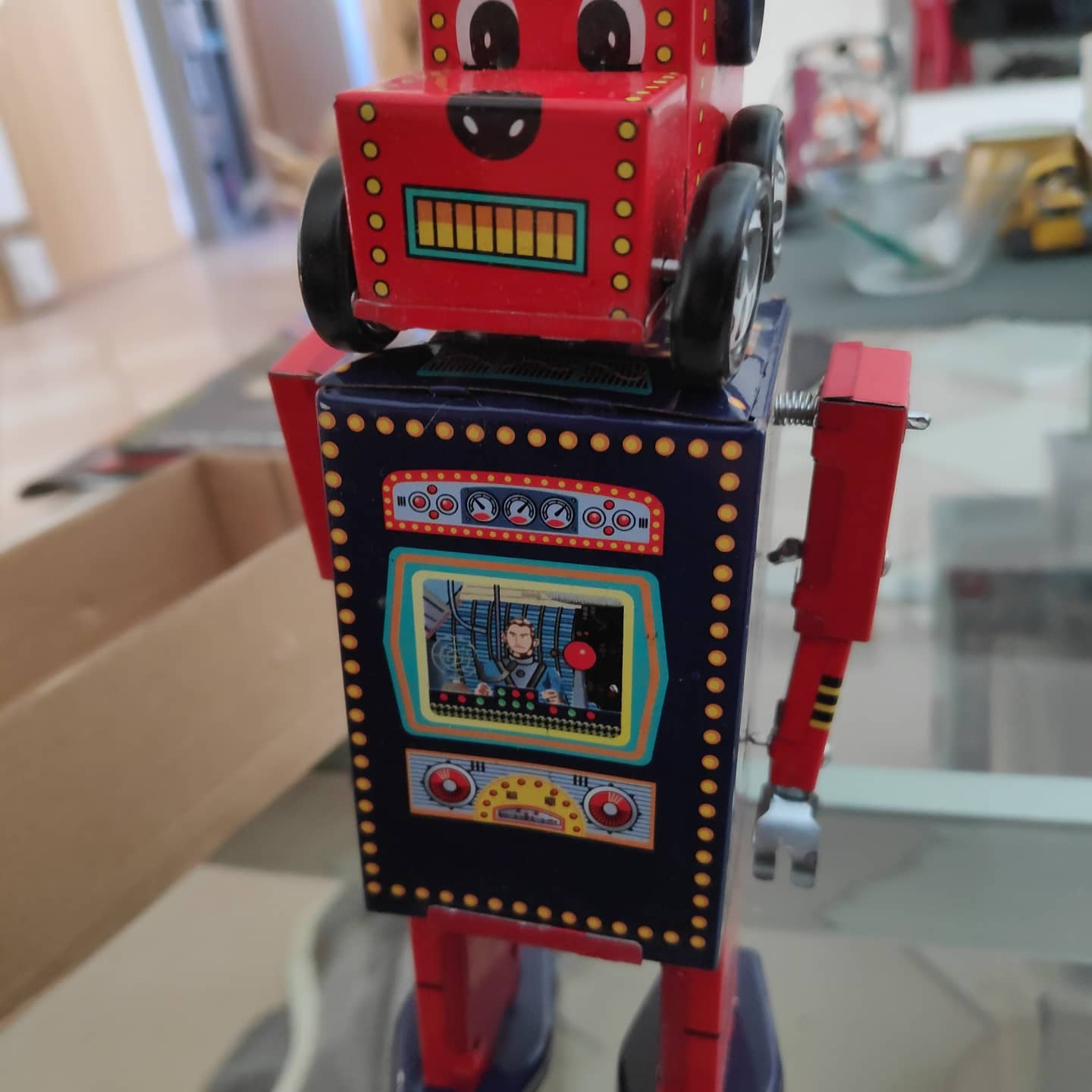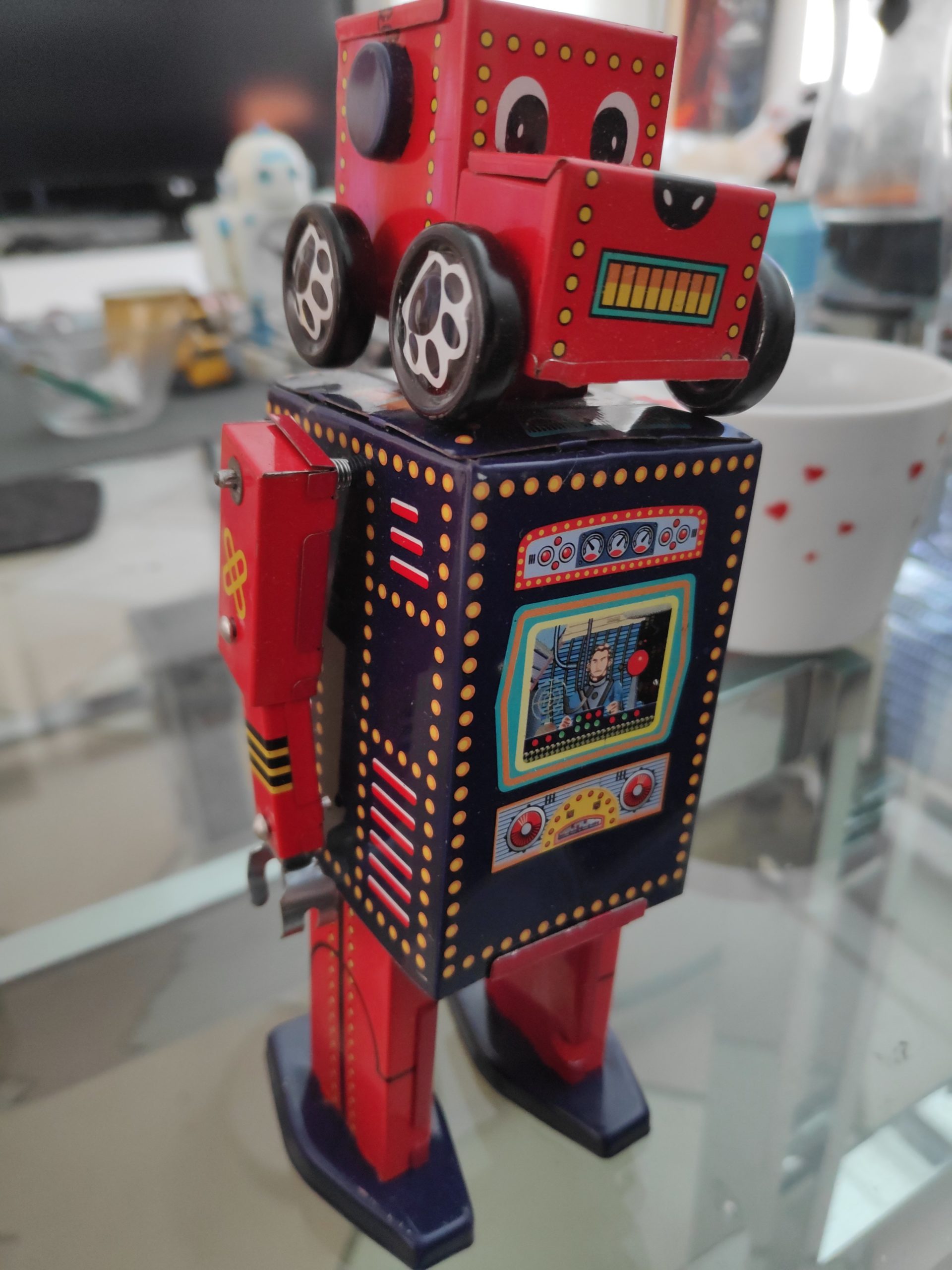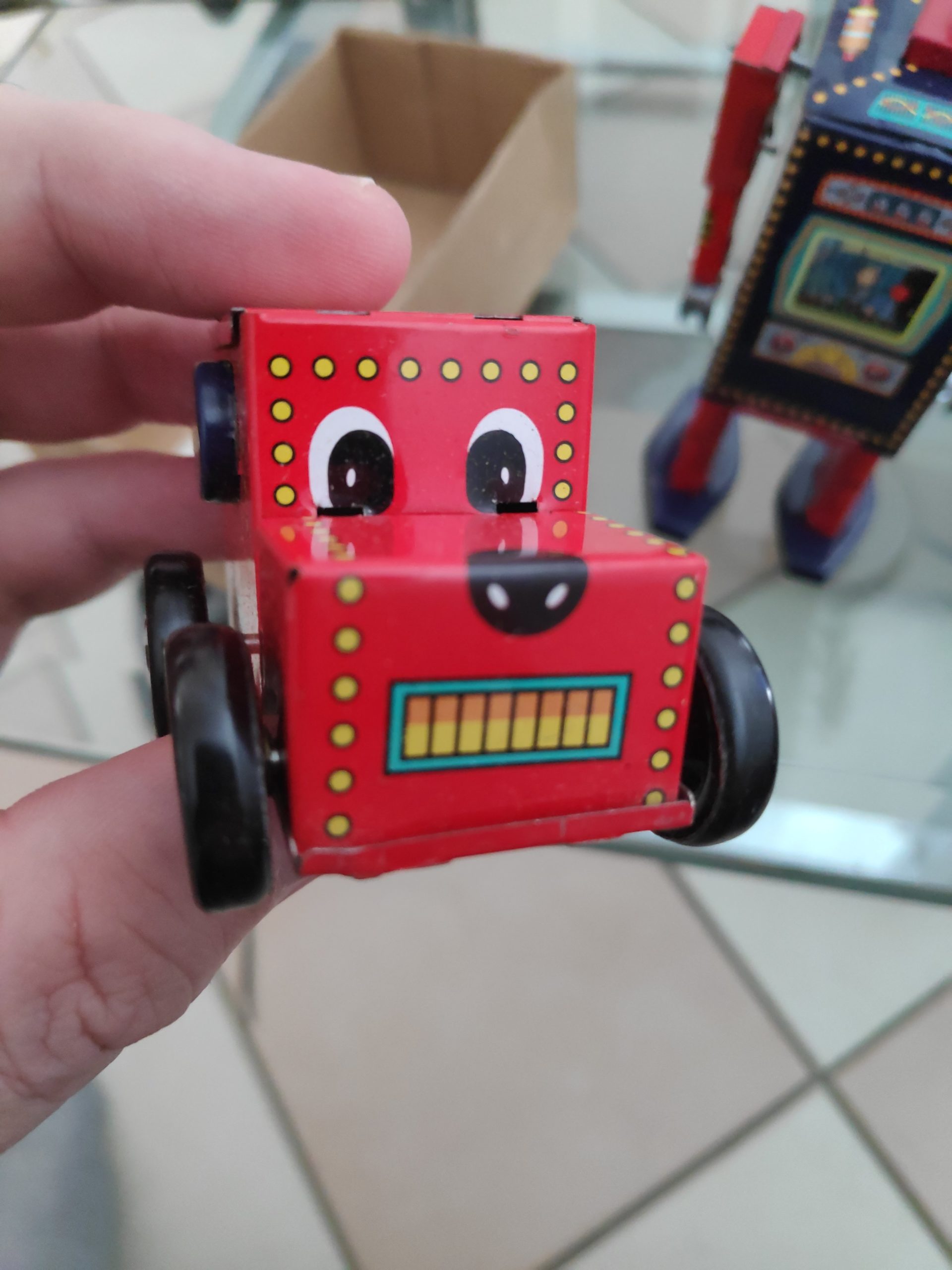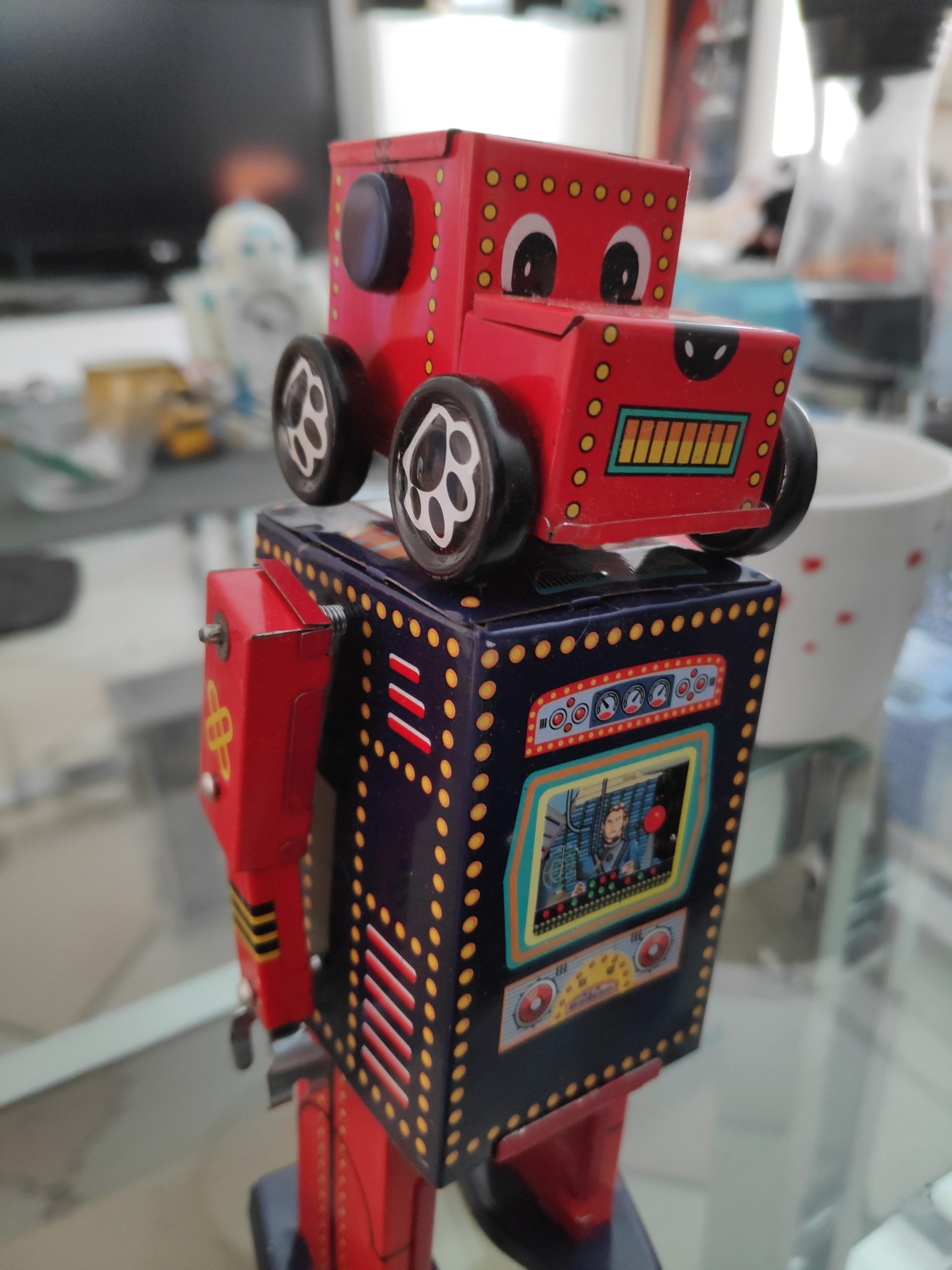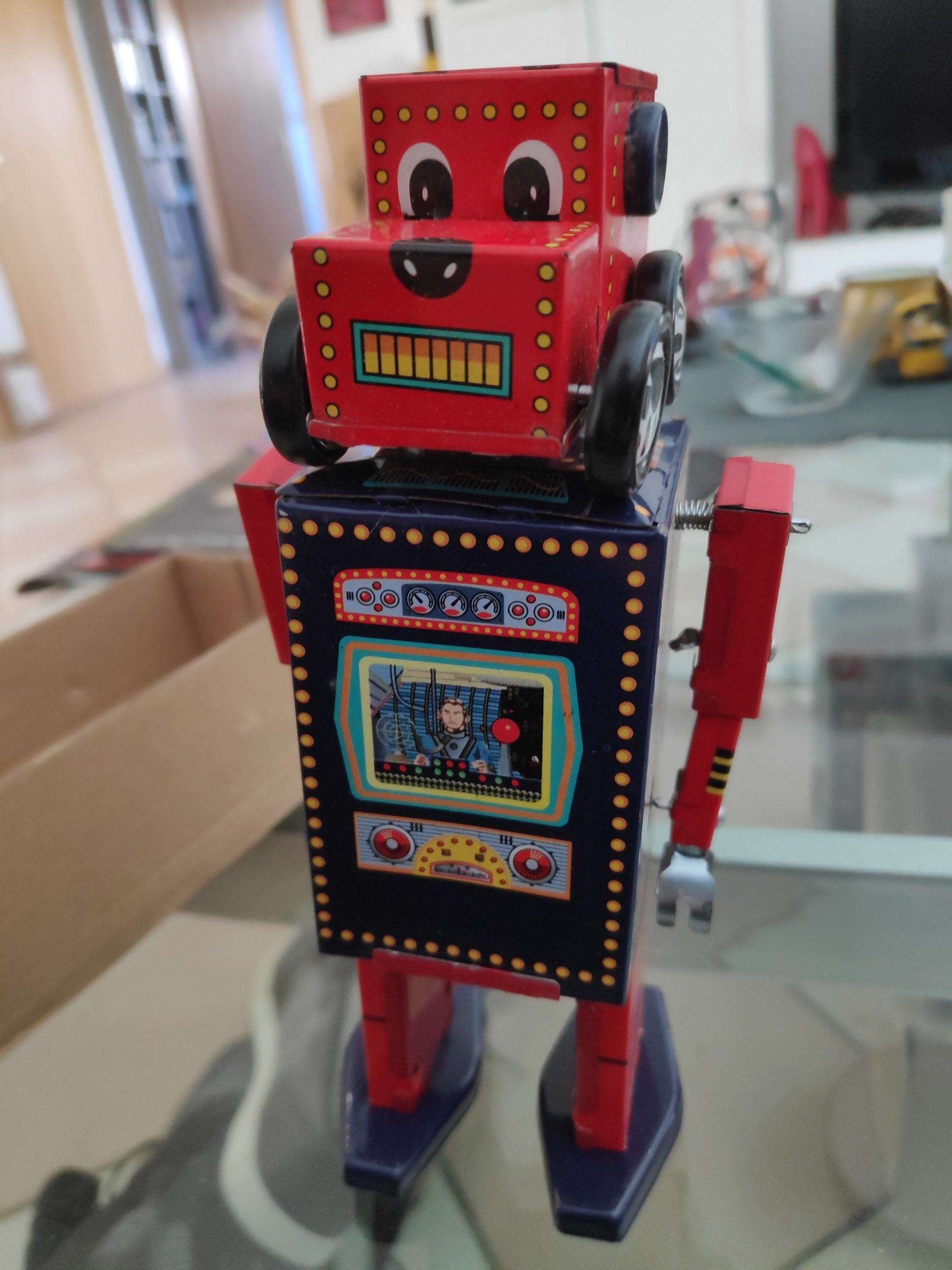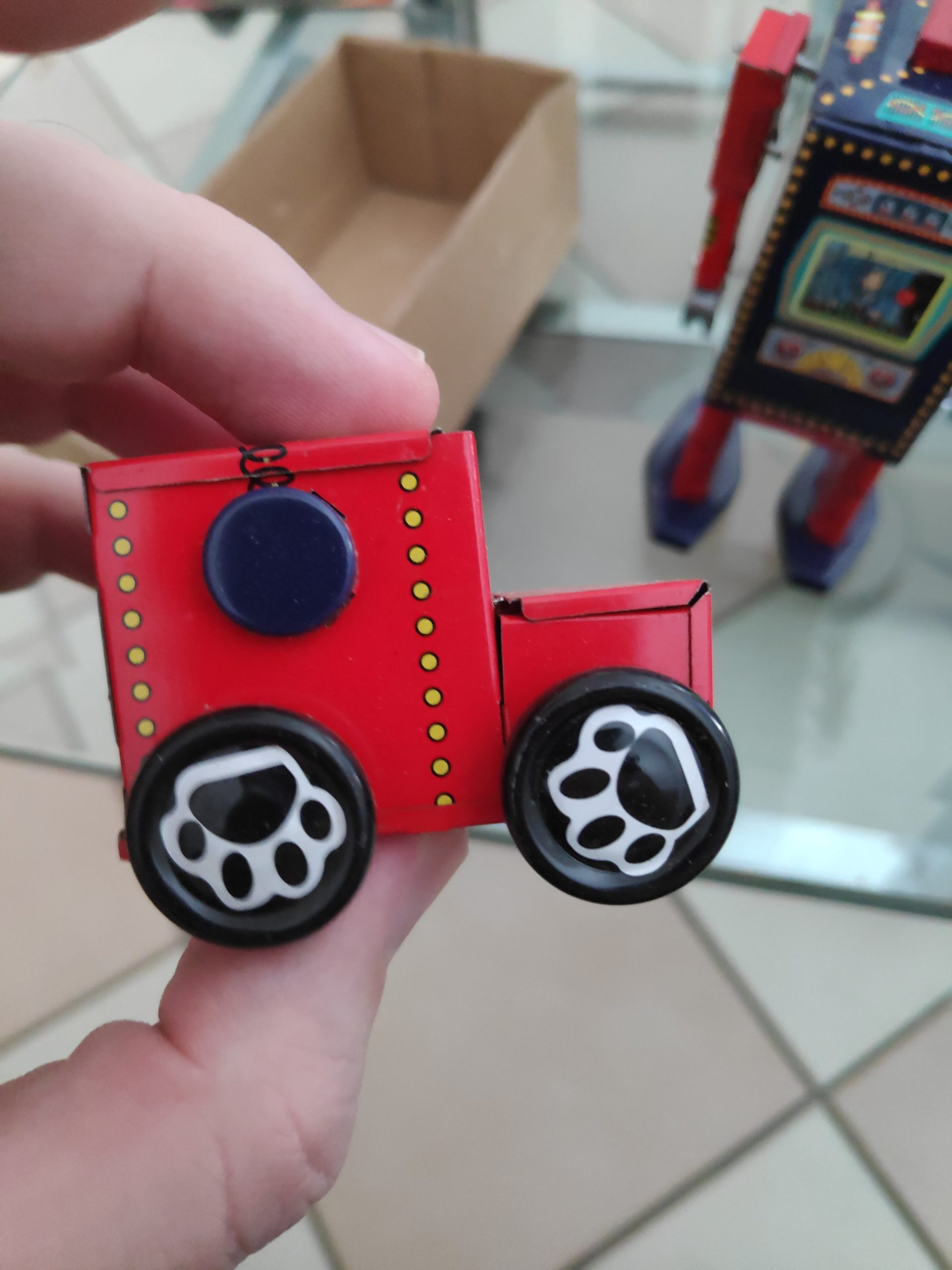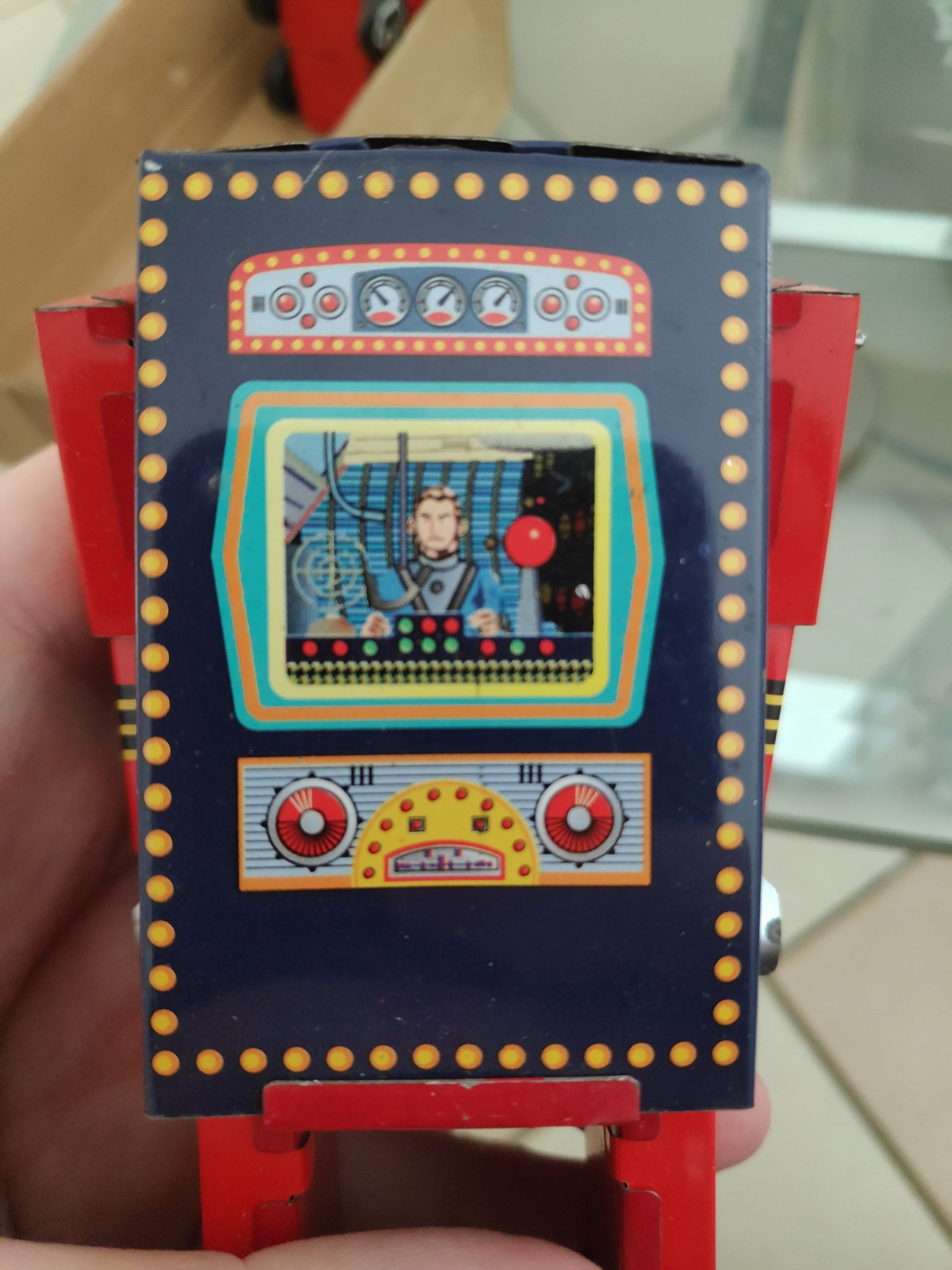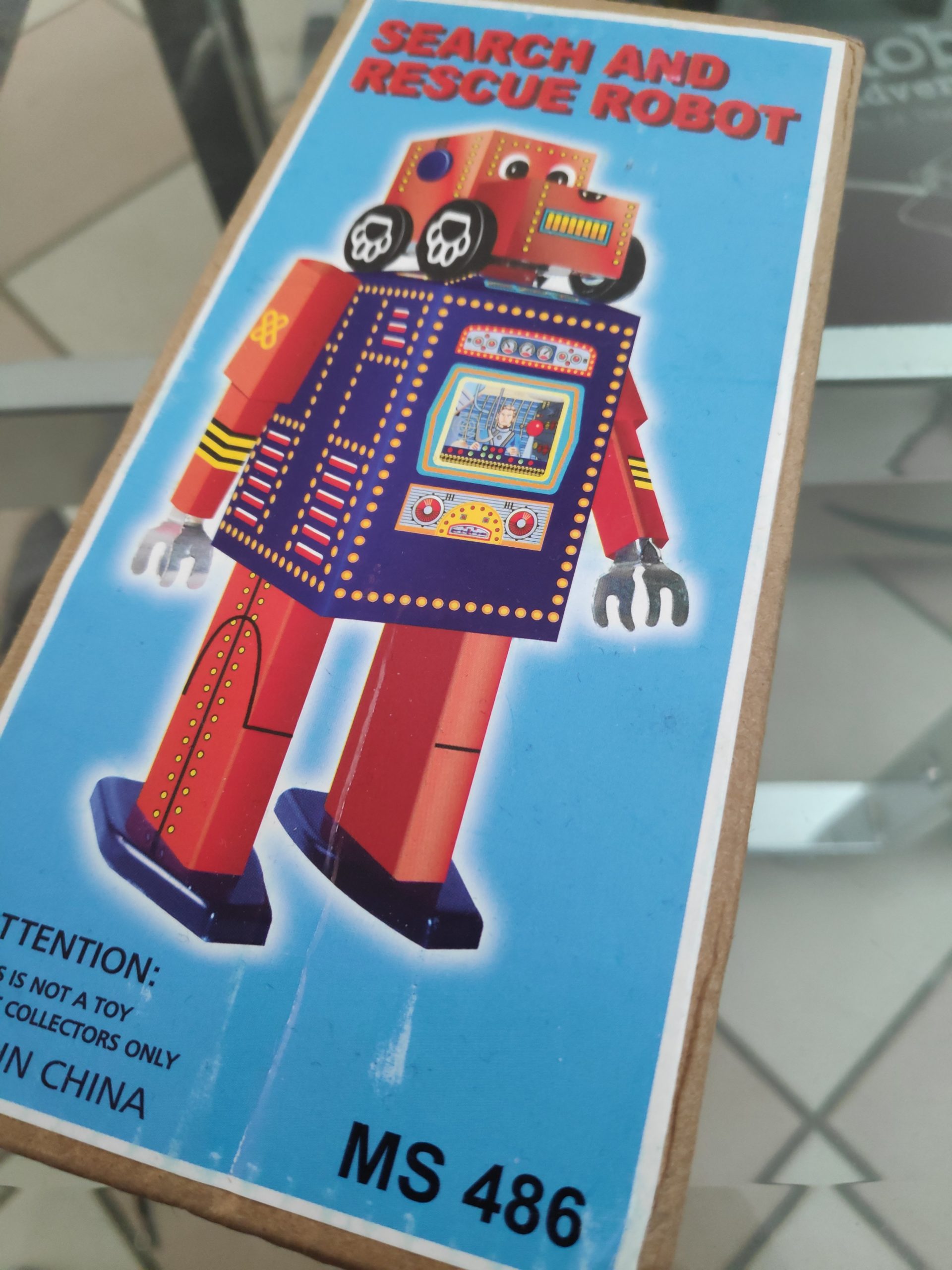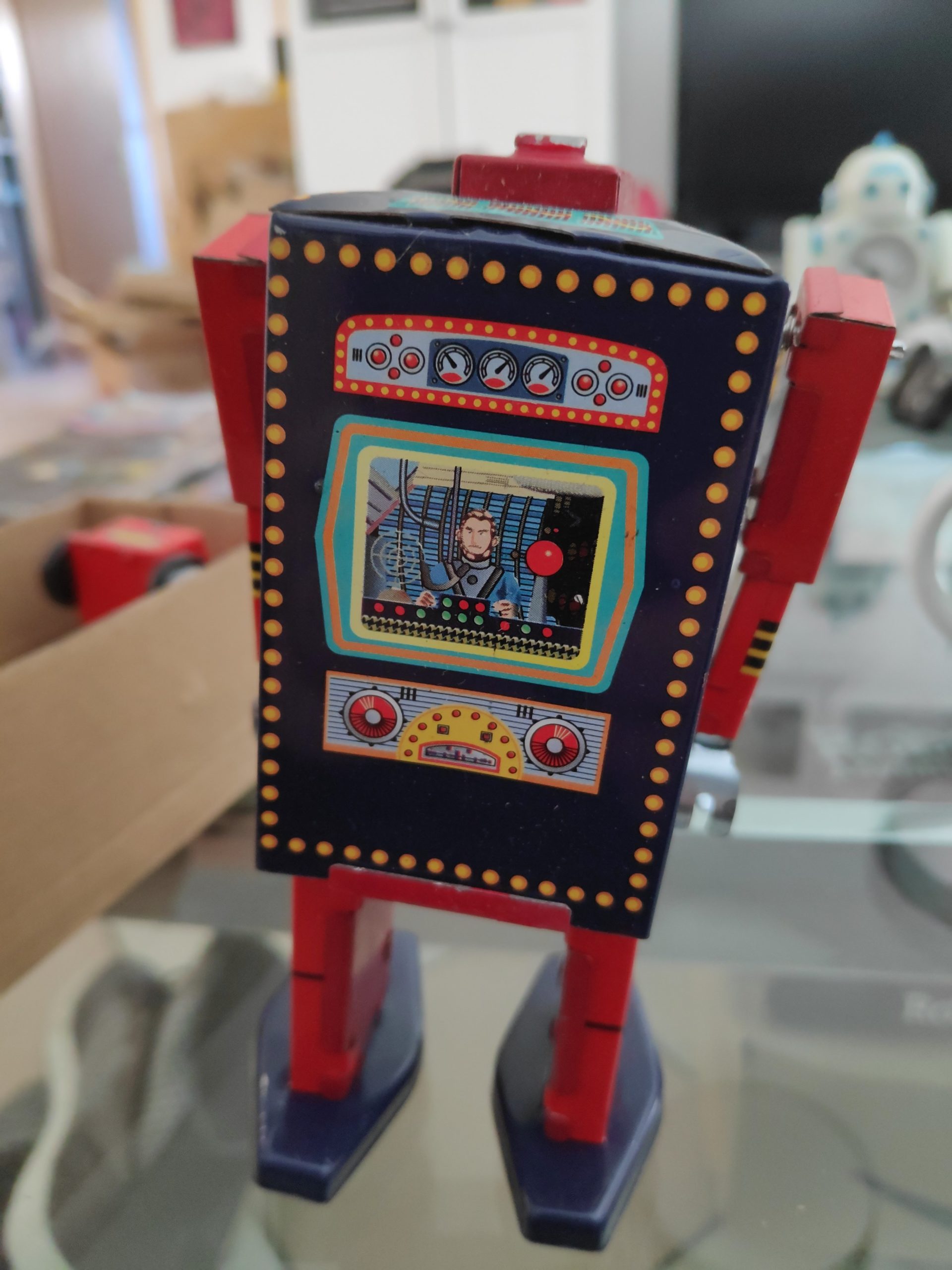Archiv der Kategorie: Fun
Rotrics DexArm knows how to visit its favourite website
flatcat, der gruseligste Roboter aller Zeiten, ist nur noch sieben Tage auf Kickstarter
Entweder haben Sie schon eins, oder Sie haben bald eins. Roboterhaustiere erobern die Verbrauchermärkte weltweit in Form von Babyrobben, Hundewelpen oder einem schwanzwedelnden Kissen. Jetzt bekommen sie Gesellschaft von einer überfahrenen Katze.
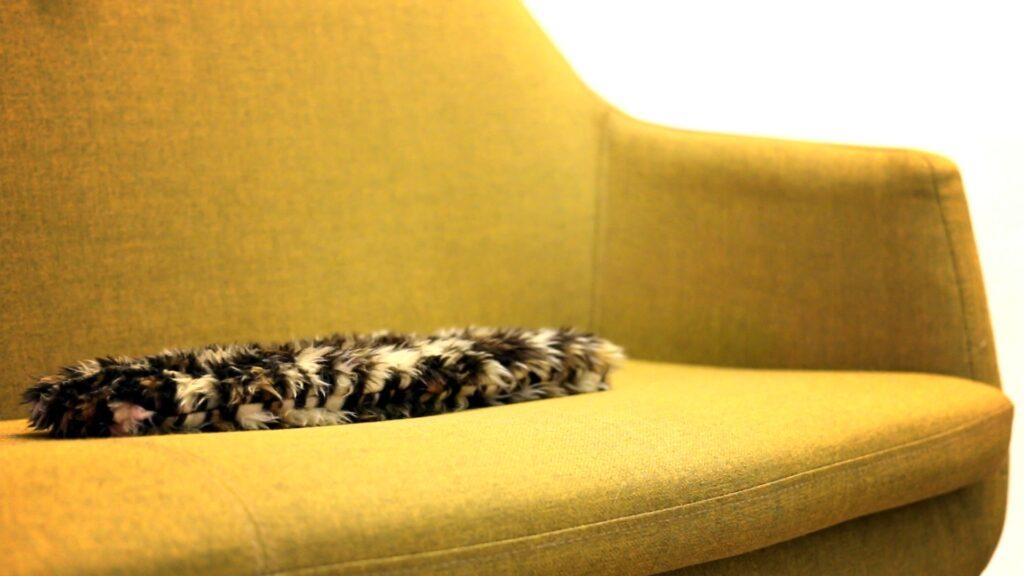
(lifePR) (Berlin, 14.05.21) flatcat wurde von Gizmodo ((https://gizmodo.com/…)) als “der gruseligste Roboter, den man je gesehen hat” betitelt, und das mag für einige tatsächlich so sein. Für viele andere ist es ein zugegebenermaßen seltsames, aber niedliches Roboter-Haustier, das sie umarmen und mit dem sie spielen wollen.
Die ersten paar Flatcats sind ab sofort und nur noch sieben Tage lang auf Kickstarter ((https://www.kickstarter.com/…), der beliebtesten Crowdfunding-Website, erhältlich. Die Kampagne steht kurz vor der Vollfinanzierung, braucht aber noch ein paar entscheidende Zusagen von Roboter-Enthusiasten aus nah und fern, die etwas bewegen wollen.
Der Roboter, der von Jetpack Cognition Lab , einem in Berlin ansässigen Unternehmen mit Grazer Wurzeln entwickelt und hergestellt wird, ist ein Roboter der neuen Art. Er ist völlig anders als alle anderen vergleichbaren Produkte auf dem Markt. Was ihn einzigartig macht, ist seine sensomotorische Kompetenz, die Kräfte seiner eigenen Bewegung und die von außen durch Menschen oder einfach durch die Schwerkraft erzeugten Kräfte zu spüren und darauf zu reagieren.
Die Fähigkeit, Kräfte direkt in den Gelenken zu spüren, erlaubt es Flatcat, neugierig zu sein und seinen eigenen Körper und die Welt auf die sicherste Art und Weise zu erkunden. Die Technologie dafür kommt aus dem Forschungsfeld der Entwicklungsrobotik, bei dem Teile der Entwicklung von Tieren und Menschen in Software und Algorithmen umgesetzt werden.
Mögliche Verwendungszwecke von flatcat sind als Haustier im Wohnzimmer, um einfach zu spielen und gemeinsam die Welt der sensomotorischen Erfahrung und Bewegung zu erkunden; als therapeutischer Roboter, um sanft einfache Bewegungen zu stimulieren, Gesellschaft und Trost zu spenden; oder als Desktop-Forschungs-Roboter für Wissenschaftler und Hacker:innen gleichermaßen, da er neben seiner hochmodernen sensomotorischen Sensibilität auch Open Source, erweiterbar und modifizierbar ist.
Jetpack Cognition Lab, Inc
Seit seinen Anfängen im Jahr 2019 bringt Jetpack Cognition Lab radikale Innovationen aus der wissenschaftlichen Forschung auf den Konsumentenmarkt. Die Gründer des Labs sind Dr. Oswald Berthold und Matthias Kubisch. Sie lernten sich während ihres Studiums an der Humboldt-Universität zu Berlin kennen und taten sich zusammen, um die schrägsten und lustigsten Roboter der Welt zu entwickeln.
Berthold ist ein in österreichischer Künstler-Technologe, geboren in Graz, der schon mit dem Kollektiv farmersmanual Musikgeschichte geschrieben hat, indem er neuartige Stile und innovative Ansätze zur digitalen Musikproduktion und -veröffentlichung im Internetzeitalter einführte. Spätestens seit er 2018 seine Promotion in Robotik innerhalb der Adaptive Systems Group der HU Berlin abgeschlossen hat, ist er damit beschäftigt, Grundlagenforschung in Kundennutzen zu verwandeln.
Kubisch ist ein deutscher Informatiker, Kreativer und Aktivist. Er hat als wesentliches Mitglied des Teams gearbeitet, das den modularen humanoiden Roboter Myon im ALEAR-Projekt unter der Leitung von Dr. Manfred Hild entwickelt hat. Außerdem hat er die Industrie von innen gesehen und Algorithmen zur Steuerung von elektrischen Kraftwerken entwickelt. Er ist nicht nur ein Experte für adaptive Echtzeitalgorithmen und maschinelles Lernen, sondern auch ein genialer Elektronikdesigner und Produktvisionär.
GinoBot, Inspiring Inventors of the Future with STEM Disciplines, Launches on Kickstarter
The all-in-one smart toy incorporates science, technology, engineering and mathematics disciplines with playtime, in a hands-on way.
Astoria, New York – (May 3, 2021) Keeping children entertained and engaged in today’s tech-driven world is now easier with GinoBot. The tool that implements a fun, hands-on experiencewith unlimited expansion potential for learning STEM disciplines, computational thinking, and digital literacy is launching on Kickstarter today.
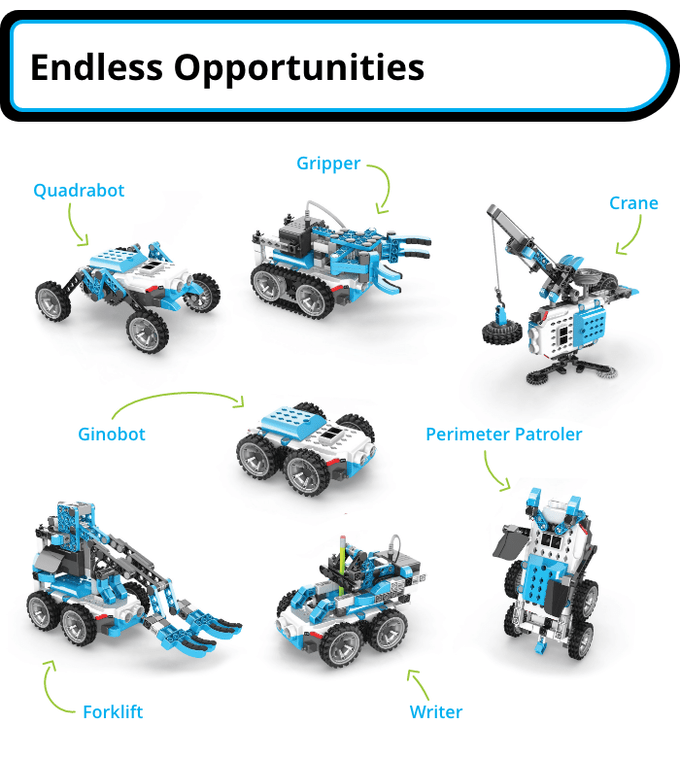
GinoBot seamlessly blends playtime with advanced learning to sharpen a child’s mind for the future. From plug-and-play robot to high-end coding and electronics, the progression of skills with GinoBot is unlimited. Children ages 6+ can build simple or complex models with GinoBot’s scalable, and compatible design.
It features KEIRO software for block-based programming, which is compatible with a PC (Windows, Linux, MAC OS) and smart devices (Google Play, Apple Store). GinoBot has Bluetooth and WiFi connectivity, as well as a micro USB connector. It can also connect with 3rd party hardware like Arduino, Microbit and Raspberry Pi, among others.
Science, technology, engineering and math, or STEM toys are the future. GinoBot is a solution for children to learn 21st century skills that lets them playfully learn how to code, design, build, and rebuild models quickly, no matter their age or learning style.
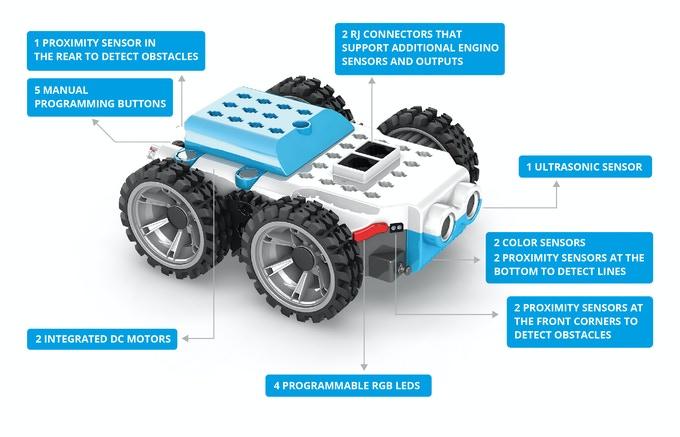
“Children are our future and we believe they are all gifted with the power to perform astonishing technological feats,” said Costas Sisamos, founder and CEO of Engino. “As STEM learning principles become more prominent in our children’s curriculum, GinoBot is a great learning tool that will keep young minds hungry to explore, design and create enabling them to experience the limitless thrill of scientific discovery.”
GinoBot is a great way to invest in your child’s imagination and expand their creativity. To pre-order, visit pr.go2.fund/ginobot.
About Engino
Engino is a toy manufacturer that specializes in construction toys and smart educational toys, and have been at the vanguard of the STEM education movement for the past 15 years. A few years ago, Engino joined the robotics market and started developing programmable robots. These robots are supported with an extensive curriculum so children can learn the digital-side of thinking and how to do programming, coding, and more. For more information, visit https://www.engino.com/.
Rotrics DexArm tricks Googles „I am not a Robot“ Captcha
Watch this video to learn how the smart robotic arm did it.
Smart Robotic Arm solves Googles „I am not a robot“ reCaptcha.
For more information on #Rotrics #DexArm, visit https://www.robots-blog.com or buy it directly at https://www.mybotshop.de/Rotrics-DexArm
If you have ideas, funny or useful, on what to do with a robot arm, contact us at [email protected]
Find the latest News on robots, drones, AI, robotic toys and gadgets at robots-blog.com. If you want to see your product featured on our Blog, Instagram, Facebook, Twitter or our other sites, contact us. #robots #robot #omgrobots #roboter #robotic #mycollection #collector #robotsblog #collection #botsofinstagram #bot #robotics #robotik #gadget #gadgets #toy #toys #drone #robotsofinstagram #instabots #photooftheday #picoftheday #followforfollow #instadaily #werbung #rotrics #dexarm #captcha #recaptcha #google #solution #solve
EIT DIY Boxing Robot – Build your own Boxer Robot
EIT DIY Boxing Robot Timelapse Build. Build your own Boxer Robot. Find the latest News on robots, drones, AI, robotic toys and gadgets at robots-blog.com. If you want to see your product featured on our Blog, Instagram, Facebook, Twitter or our other sites, contact us. #robots #robot #omgrobots #roboter #robotic #mycollection #collector #robotsblog #collection #botsofinstagram #bot #robotics #robotik #gadget #gadgets #toy #toys #drone #robotsofinstagram #instabots #photooftheday #picoftheday #followforfollow #instadaily #boxer #boxing #eit #diy #buildingkit #sport
Robothon® – The Grand Challenge 2021 goes digital!
What is the Robothon®?
The Robothon® – Grand Challenge Series is an international competition in robot manipulation and one of the 4 areas of munich_i
– a new high-tech format of Messe München, automatica and the Munich School of Robotics and Machine Intelligence (MSRM) of the Technical University of Munich (TUM).
At this year’s automatica sprint from 22-24 June 2021, munich_i celebrates its premiere as a hybrid version and brings together leading global thought leaders and personalities from AI and robotics.
Due to uncertain planning during the pandemic and travel restrictions, we have now decided to realize the Grand Challenge 2021 in a 100% digital version!
With this, we want to offer all international academics and young professionals the opportunity to participate in the Robothon®!
NEW DATE & BENEFITS: the Robothon® will take place digitally in the period from 14 May–17 June, 2021!
As a special highlight, the Award Ceremony will take place on 22 June at noon during the Hightech Summit at automatica sprint 2021!
We put our heads together and came up with a new, exciting concept for the digital realization.
WHAT’s NEW?
– You and your team can work remotely
– Teams will need to supply their own robot for the competition
– Each team will receive a competition task board by mail to complete the challenge
– Teams will be given 1 month from receipt of the competition scorecard and task board to develop their solution
– Team performances will be evaluated based on a recorded video submission and a live presentation with the judges
via our digital platform at the end of the working period
– The winning teams will be honored digitally by the jury and sponsors at our Award Ceremony, that will take place at
noon during the Hightech Summit at automatica sprint
WHAT’s the SAME?
– The Robothon® – The Grand Challenge 2021 will focus on the single-arm robot manipulation showcasing
skills for the disassembly and sorting of electronic waste
– The digital concept will continue to be part of munich_i during automatica sprint
– The competition is open to the public and free of charge for selected teams
– Up to 20 teams can participate (2-5 members per team)
– All roboticists (academic and young professional) are encouraged to apply
– Final demonstrations will be evaluated by our Grand Challenge Jury of renowned international thought leaders
– Prizes up to 20,000 € have already collected!
HAVEN’T SIGNED UP YET? Find more information and apply as a team until 23:59 CEST 25 April 2021
or visit our website www.robothon-grand-challenge.comhttp://www.robothon-grand-challenge.com to learn more.
Rotrics DexArm Installation und erste Zeichnung
In diesem Video seht ihr, nur leicht beschleunigt, wie schnell sich der Rotrics DexArm Roboterarm anschließen, einrichten und in Betrieb nehmen lässt. Für einen ersten Test, lasse ich den Roboterarm mein RobotsBlog Logo zeichnen.
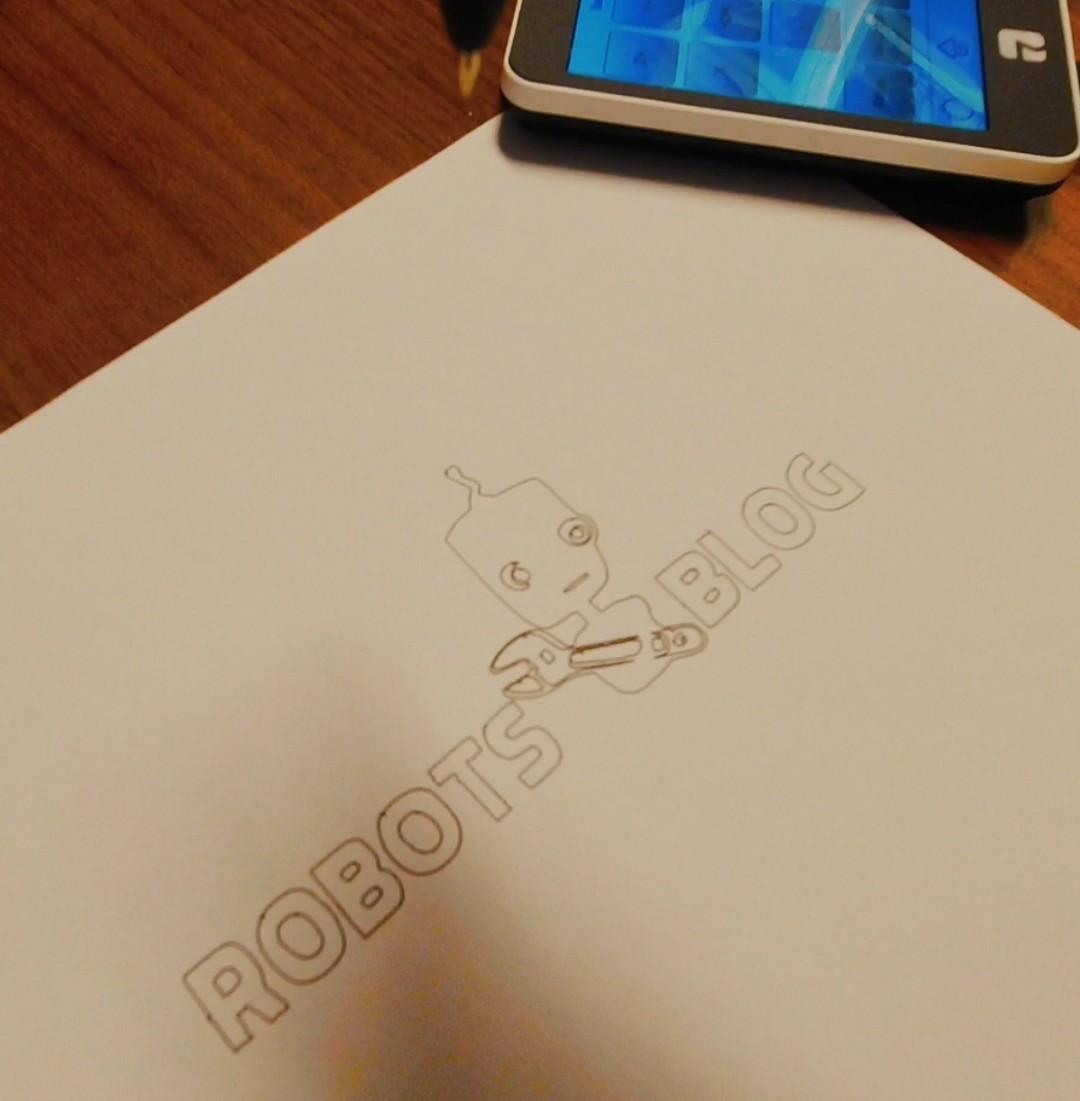
Zuvor habe ich die neueste Firmware und Software installiert, sowie mich mit dem TouchPanel auseinandergesetzt und dessen Funktion getestet. Rechnet man diese Zeit heraus, so dauert es vom Auspacken bis zur erstens Verwendung des Roboterarms höchstens fünf Minuten.
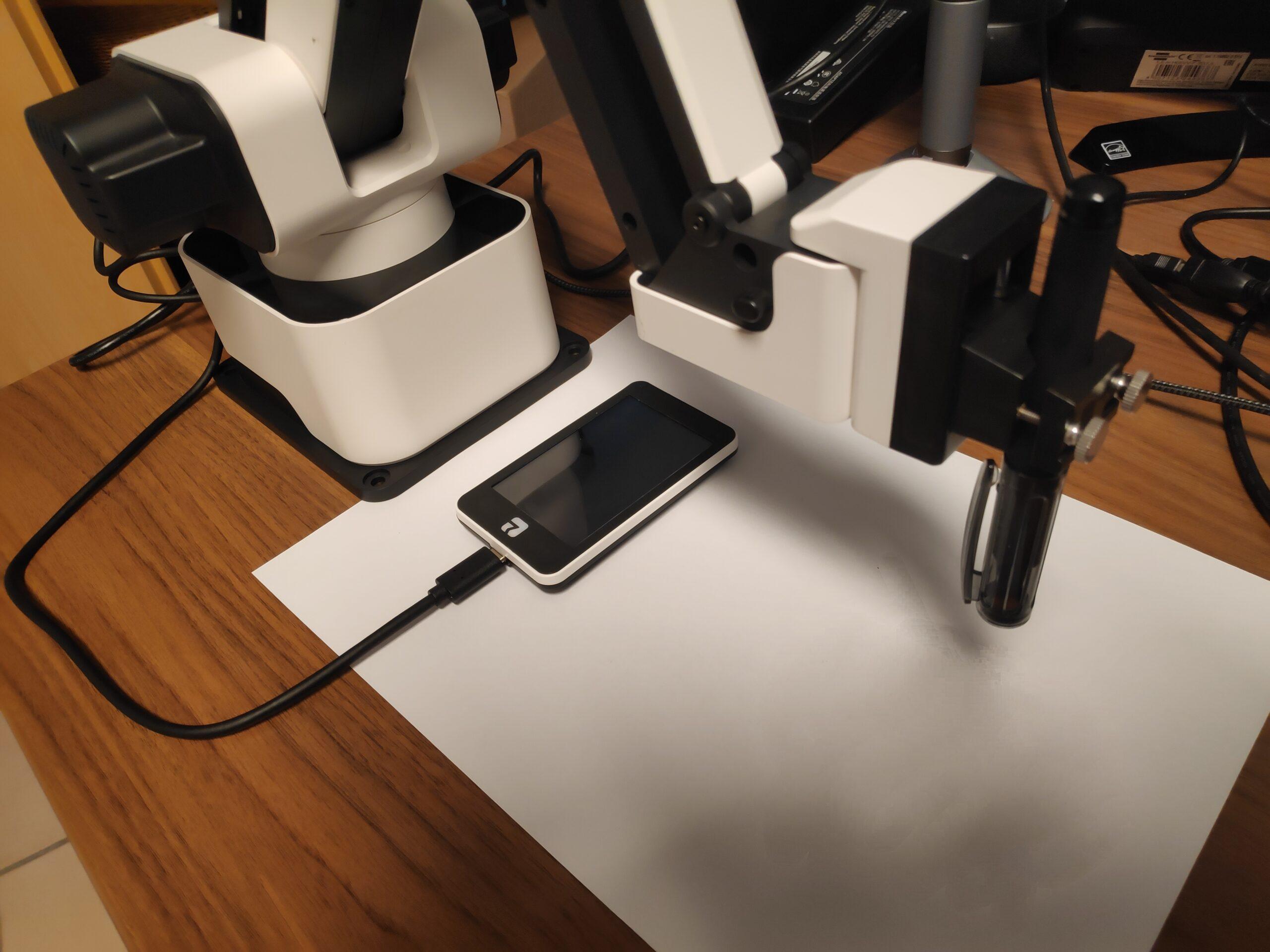
Verzichtet man auf die Anbindung an den Computer oder das Verwenden eines eigenen Logos zu Testzwecken, kann der Roboterarm komplett über das Touchpanel eingerichtet und direkt ausprobiert werden. So könnte man sogar noch schneller mit dem Rotrics DexArm starten und benötigt noch nicht einmal einen Computer.
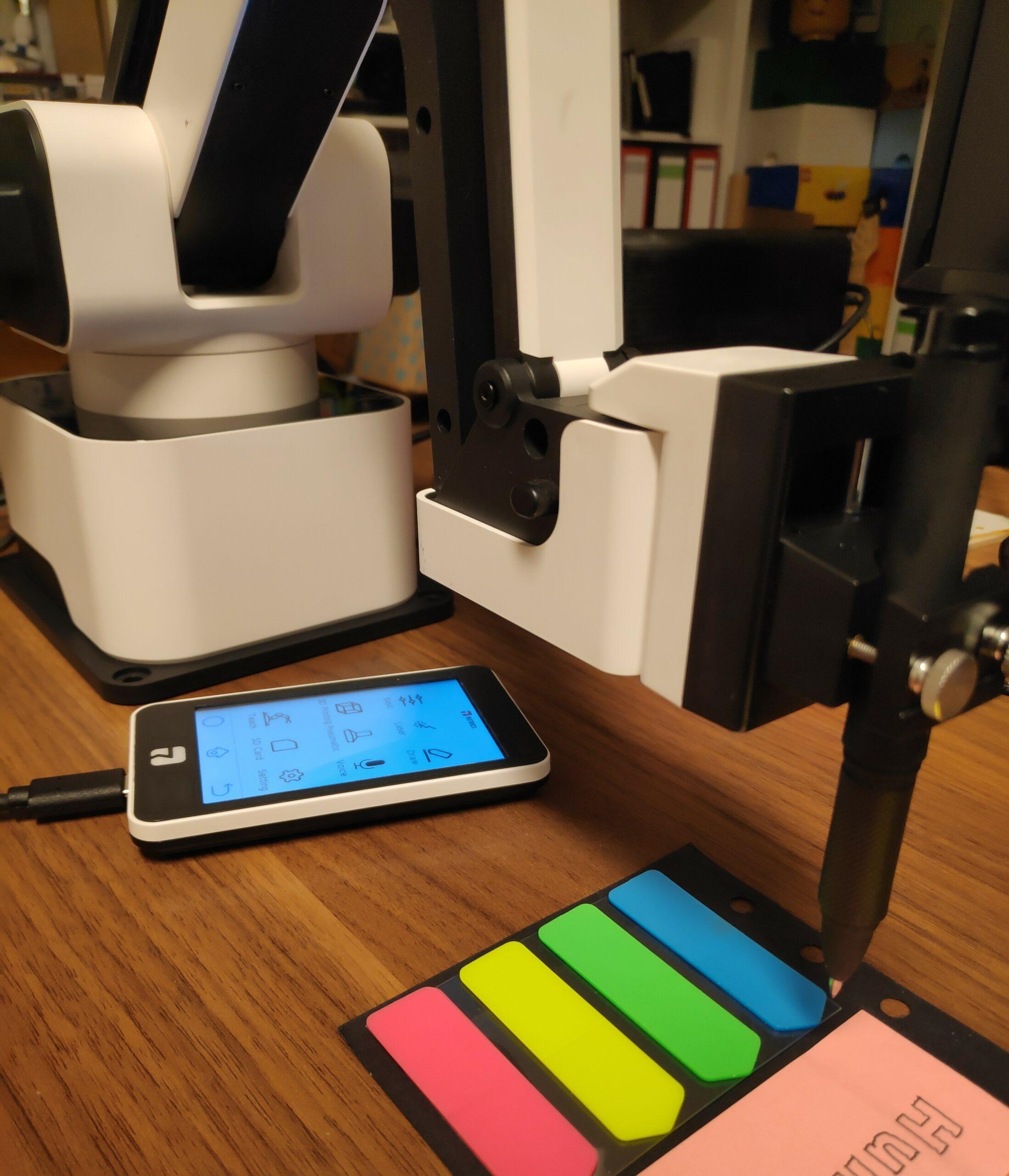
Insgesamt ist die Bedienung sehr einfach und die Software führt einen am Computer durch alle notwendigen Schritte. Hier sind keinerlei Vorkenntnisse erforderlich. Das Schreiben von Text oder Zeichnen von Grafiken mit dem Roboterarm könnte wirklich nicht einfacher sein.
Maker Faire Hannover Digital Edition: Aussteller gesucht
Das interaktive Digitalformat für Maker-Kultur und MINT-Themen
Hannover, 11. März 2021 – Im Rahmen des bundesweiten Digitaltags am Freitag, den 18. Juni 2021, findet die Maker Faire Hannover zum ersten Mal virtuell statt. Das neue Veranstaltungsformat gibt inspirierende Einblicke in die verschiedenen Maker-Themenwelten und lädt zum Wissensaustausch und Vernetzen ein. Interessierte Maker und Unternehmen können sich bis zum 30. April 2021 für einen der begrenzt verfügbaren, kostenlosen Ausstellungsstände bewerben.
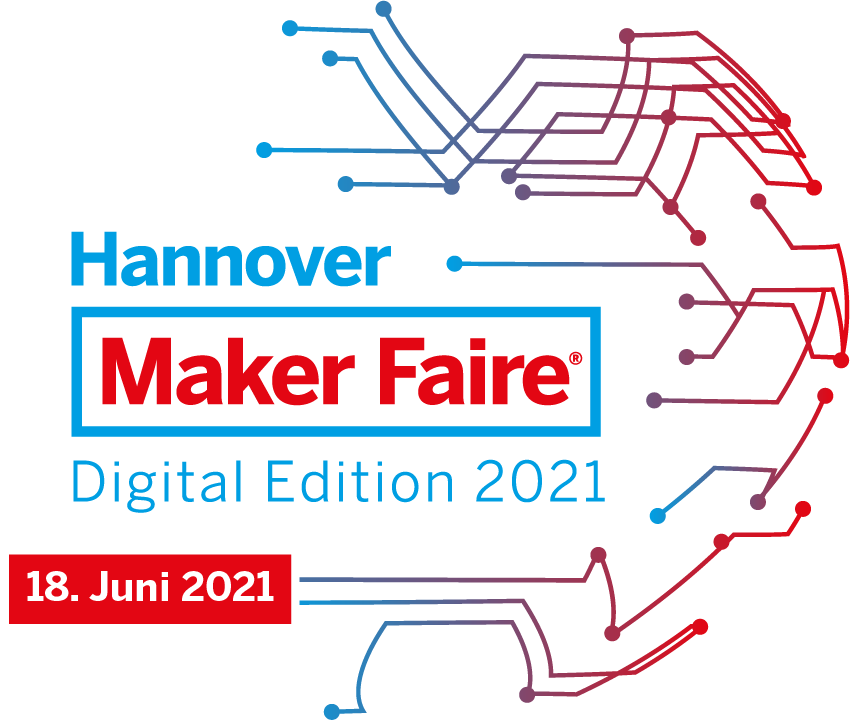
„Wir suchen kreative Projekte und frische Ideen aus der Maker-Community, aus dem Start-up-Bereich oder aus Innovationslabs von Unternehmen. Ob Robotik, 3D-Druck, Rapid Prototyping oder zu den Themen Coding, Smart Home, E-Mobilität oder Wearables: Wir freuen uns über zahlreiche Bewerbungen. Projekte rund um Upcycling und Nachhaltigkeit, Holzbau, Urban Gardening sowie Wissenschaft und Forschung sind ebenfalls willkommen“, erklärt Kristina Fischer aus dem Maker-Faire-Team.
Die Digital Edition bietet jedem Aussteller und jeder Ausstellerin einen virtuellen Stand. Kurze Projekt- oder Werkstattvideos – egal ob mit der Smartphone-Kamera oder professionellem Equipment aufgenommen – sollen einen ersten Eindruck verschaffen und bei den Teilnehmern Neugierde wecken. „Wichtig ist uns, den direkten Austausch zwischen Teilnehmenden und Ausstellenden zu fördern. Wir wollen Beziehungen aufbauen, uns vom Maker-Spirit anstecken lassen, miteinander staunen und voneinander lernen”, betont Fischer. „Dafür richten wir Live-Video-Chats für den direkten Austausch ein, in denen Fragen zu Projekten und Produkten gestellt werden können.“
Zusätzlich zu den virtuellen Ausstellungsständen gibt es bei der Digital Edition der Maker Faire Hannover einen Wissenshub, in dem Fachleute in Form von kurzen Vorträgen zu aktuellen Maker-Themen referieren, ergänzt um eine Diskussionsrunde zur (digitalen) MINT-Berufsorientierung.
Darüber hinaus plant das Veranstaltungsteam eine Entertainmentshow mit spektakulären Live-Experimenten, Video-Clips, Interviews und Live-Schaltungen sowie vielen Überraschungen, die Lust auf die Maker-Welt machen.
Die Thementische – virtuelle Räume für bis zu 250 Personen – bilden einen weiteren wichtigen Baustein des neuen Veranstaltungsformats. Hier werden Themen vertieft und diskutiert, zudem wird das Vernetzen unter den Teilnehmenden gefördert. Auch Partner-Organisationen und Sponsoren haben hier die Möglichkeit, sich zu präsentieren.
Bewerbungen von Makern für einen virtuellen Stand können bis zum 30. April unter folgendem Link eingereicht werden: https://maker-faire.de/hannover/call-for-makers
Interessierte Unternehmen bewerben sich hier: https://maker-faire.de/aussteller/
Ideen und Vorschläge für die Live-Entertainmentshow nimmt das Maker Faire-Team unter folgender Adresse gern entgegen: https://maker-faire.de/hannover/call-for-participation/
Die Teilnahme an der Digital Edition der Maker Faire Hannover ist kostenfrei.
Nähere Informationen zum Programm und den Teilnahmemöglichkeiten werden in den kommenden Wochen auf maker-faire.de/hannover veröffentlicht. Ein kostenloser Newsletter informiert regelmäßig über das aktuelle Geschehen.
Tin Toy Search and Rescue Robot MS486 with detachable Dog Head Pullback car
Tin Toy Search and Rescue Robot MS486 with detachable Dog Head Pullback car. Find the latest News on robots, drones, AI, robotic toys and gadgets at robots-blog.com. If you want to see your product featured on our Blog, Instagram, Facebook, Twitter or our other sites, contact us. #robots #robot #omgrobots #roboter #robotic #mycollection #collector #robotsblog #collection #botsofinstagram #bot #robotics #robotik #gadget #gadgets #toy #toys #drone #robotsofinstagram #instabots #photooftheday #picoftheday #followforfollow #instadaily #tintoy #tinrobot #tin #pullback #windup
